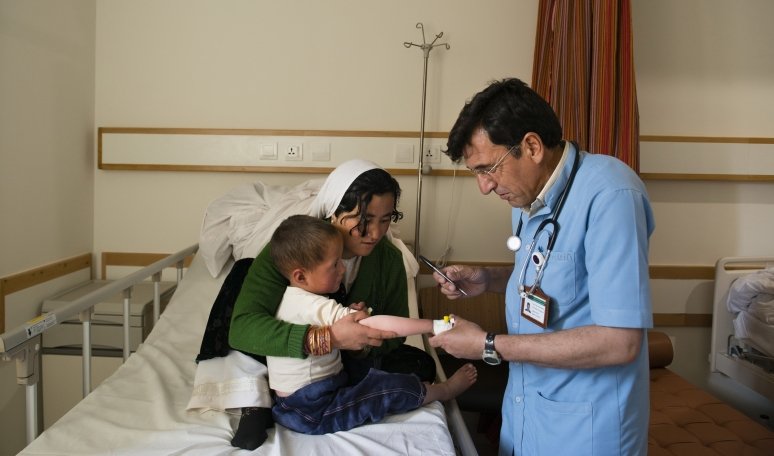
Kabul: The Aga Khan Health Services (AKHS) has taken over management of health care facilities in the Bamyan and Badakhshan provinces of Afghanistan.
An agreement to this effect was signed at the Afghanistan’s Ministry of Public Health the other day.
Through the project, AKHS will now manage over 1,015 health posts in villages, 158 basic and primary health centres, 24 comprehensive health centres (around 10 beds each), five (5) district hospitals (30 beds each), and two (2) ISO-certified provincial hospitals in Faizabad and Bamyan until June 2021.
The project has the objective of increasing the use and quality of health, nutrition and family planning services across 31 provinces. The expansion is based on earlier positive experience of the AKHS, which has managed the Bamyan and Faizabad provincial hospitals, on behalf of the government of Afghanistan since 2004.
“The agreement specifies the staff, equipment, diagnostic services and medications that should be provided by each primary health facilities in the Afghan health system,” said Dr Massoud Mehrzad, Chief Executive Officer of AKHS Afghanistan. “It also sets the standards for hospitals in the system,” he added.
Under the Sehatmandi project, the new health system will operate under a new pay-for-performance model. The agency’s success will be measured on the number of antenatal and postnatal care visits, institutional deliveries, family planning, growth monitoring and nutrition counseling for children under the age of 24 months, health consultations for children under the age of five, the number of immunized infants, the number of women of reproductive age who are immunized against tetanus, the number of tuberculosis cases that are successfully treated, and the quantity, as well as quality, of caesarean sections and major surgeries.
“The idea that service providers will be compensated for their work if they meet pre-established benchmarks is a game changer for Afghanistan,” said Dr Gijs Walraven, AKDN Director of Global Health. “And while these requirements may seem challenging, the AKHS and the AKF are committed to meeting the targets set by the Sehatmandi project.”
The project was launched in 2018 in recognition that while significant advances had been made to improve access and the quality of health care in Afghanistan since 2002, progress had been uneven. The World Bank in partnership with the Afghanistan Ministry of Public Health (MoPH), USAID and the European Union, launched the programme known as a pay-for-performance model. The project holds service providers accountable for delivering improvements based on established targets.
AKHS has also trained community midwives to work in rural areas in Badakhshan, Bamyan and Baghlan where maternal and child health care provisions were most needed. The Agency established the first 24-month Community Midwifery Education Programme in 2004, and has since trained, as well as deployed, 459 midwives across the three provinces. In 2012, AKHS initiated the Community Nursing Education Programme, which has graduated 194 community health nurses who now work across the three provinces.
The AKHS in Afghanistan is a partner of the MoPH in providing basic health and hospital services to a population of over 1.5 million in some of Afghanistan’s most remote and inaccessible districts in the provinces of Badakhshan, Baghlan, and Bamyan. AKHS is also working with the Afghan government to develop and maintain qualified health human resources in all areas of health care by offering continuous education for doctors, nurses, health professionals and administrators, as well as providing technical advice and support on health policy, nursing standards and midwifery education.

The High Asia Herald is a member of High Asia Media Group — a window to High Asia and Central Asia
